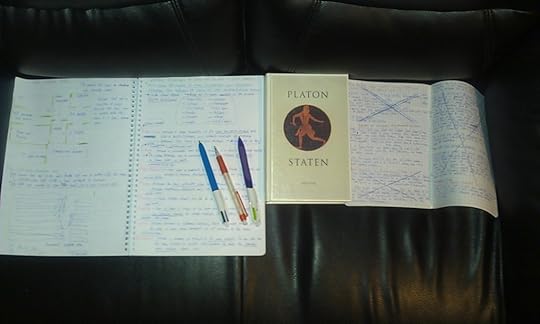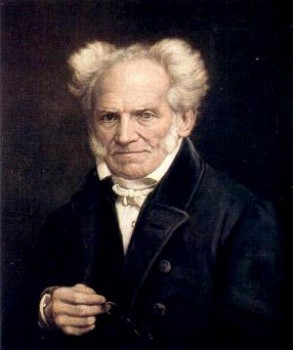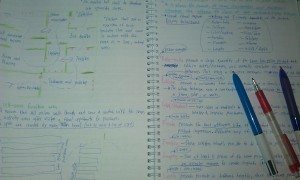When Should You Read? And How Much?
 If you’ve read SGM for a while you’ll know I place a high importance on reading (books).
If you’ve read SGM for a while you’ll know I place a high importance on reading (books).
Reading is important because for most people it’s their main way of gathering information. And people’s inputs for information invariably affect the thoughts they’ll have. That’s why you shouldn’t read magazines or watch the mainstream media. You should read books.
But, when should you read, and how much?
These are questions I have put much thought into over the past 1.5 years.
However, I have resolved them by using the strategies in this article. I have not changed my approach since I first started doing these things, and I feel confident that they work.
—————————
Arthur Schopenhauer is the one who has contributed the largest share of inspiration to my current take on these questions. His main argument for why you shouldn’t read too much is that it handicaps your capacity for original thinking.
Much of his advice is sound, but bear in mind that times are now different from when he lived ca 1800, especially in regards to how we take in information, and the sheer volume of it that’s out there now.
Enter Arthur:
If a man’s thoughts are to have truth and life in them, they must, after all, be his own fundamental thoughts; for these are the only ones that he can fully and wholly understand. To read another’s thoughts is like taking the leavings of a meal to which we have not been invited, or putting on the clothes which some unknown visitor has laid aside.
– Arthur Schopenhauer
He goes on to say,
Reading is nothing more than a substitute for thought of one’s own. . . A man should read only when his own thoughts stagnate at their source, which will happen often enough even with the best of minds. On the other hand, to take up a book for the purpose of scaring away one’s own original thoughts is sin against the Holy Spirit. It is like running away from Nature to look at a museum of dried plants or gaze at a landscape in copperplate.
Here’s one of the key things that has changed: people today don’t read books for the purpose of “of scaring away one’s own original thoughts” . We have the Internet, porn, video games, candy, or other — much more efficient distractions — for that purpose.
A man can always sit down and read, but not—think. It is with thoughts as with men; they cannot always be summoned at pleasure; we must wait for them to come. Thought about a subject must appear of itself, by a happy and harmonious combination of external stimulus with mental temper and attention; and it is just that which never seems to come to these people.
When he says “these people”, he is referring to people who are well-read and know a ton of concepts, but don’t know anything about their application or what they mean, they only know that someone else has said it. Certain academics are a lot like this.
And finally,
A man must wait for the right moment. Not even the greatest mind is capable of thinking for itself at all times. Hence a great mind does well to spend its leisure in reading, which, as I have said, is a substitute for thought; it brings stuff to the mind by letting another person do the thinking; although that is always done in a manner not our own. Therefore, a man should not read too much, in order that his mind may not become accustomed to the substitute and thereby forget the reality; that it may not form the habit of walking in well-worn paths; nor by following an alien course of thought grow a stranger to its own
My arguments:
Fundamentally, I agree with what Schopenhauer is saying. But it comes down to purpose: sometimes your own thinking will only get you so far. And if you read intelligent people’s thoughts, it’ll save you a lot of time, compared to reinventing the wheel from scratch.
In other words, it’s not black or white. It’s a matter of judgment — after all, why do you read? What is the end goal?

I usually read for specific learning purposes. I also frequently read to write, meaning that I read to find an interesting topic to think about. If I read thought-provoking content in a book, I’ll put the book down (or minimize the Internet tab) and start to write a mini-essay on the topic. Then, once I’ve exhausted my train of thought, I’ll get back to reading.
I’d like to think that Schopenhauer would nod in approval to this.
[Note: The mini-essays accumulate and sometimes become the articles I put up on the site.]
Books as Mental Crutches
So, is Arthur Schopenhauer right? Can reading books be harmful?
To be fair, I think that it’s rare in this day and age. Sure, information overload is extremely common, in fact, it’s the norm.
But from reading books? I don’t think so.
I think the main reason why many people suffer from information overload is because they read with such shallowness and move on to new information too quickly. And that’s a lot easier to do on the Internet than it is from reading a book.
I have previously said that most people don’t find it particularly entertaining to read lengthy books.
It is so.
Since most people aren’t in the habit of doing it, they don’t like the effort required to focus. Instead they want the information to be fed to them effortlessly.
They want it to be skimmable, not very challenging, quick and witty, and after having read it they want to be left with a feeling of superiority relative to the suckers they read about. So they tune into the mainstream media, read at big forums, or hang out at Reddit where they can get a seemingly large benefit from a small investment of energy.
Having said that, I don’t think reading is harmful when you do it the right way, or when you use it to jumpstart your own thinking — which is what Arthur prescribes.
Reading the right way has a lot to do with. . .
How Much Information You Retain
You know you’re reading too much — or too quickly — if you don’t retain much of the information later. Like the boring and practically useless information you were forced to learn in school just to pass an exam in a subject that no one even knew why it was mandatory.
You can fix this by improving your framework for learning things:
Take notes and summarize the key points of things you read online.

Take physical notes with a multicolored pencil to make it faster to go through later by being able to distinguish between different types of information. Plus you feel like a badass when you create your own system.
Talk about the things you have learned ASAP while this information is still fresh in mind. Bring these things up in conversation to get extra repetitions, and memorize it better.
[Note: I do this all the time to strangers and girls when I go out socializing. People like to learn new things, and if you do it the right way you'll come off as smart. Try it out.]
Use a book summary book to keep the essential, most practical, and actionable advice from the books you read.
Have specific questions in mind when you read, this helps your brain look for patterns.
While you’re reading, be sure to write down associations that interesting paragraphs or quotes from the text make you think about. Associations strengthen memory and help you connect dots. Here’s an example:
The people can always be brought to the bidding of the leaders. That is easy. All you have to do is tell them they are being attacked, and denounce the pacifists for lack of patriotism, and exposing the country to greater danger.
–Hermann Goering
Association: This seems familiar. Isn’t this like what happened in the U.S with 9/11?
The key words being: “This is like… XYZ” .
Over time, as you read a lot of books and write down associations, you’ll be able to see patterns that most other people don’t see.
Learn Now or. . . Never?
One of the most important points I made in Breaking out of Homeostasis was:
Learn things and form your view of the world while your potential to do so is still at its peak. Which, according to different studies seems to be somewhere between ages 30-40 years old. After that point in time your prefrontal cortex (PFC) — which is imperative to learning — is no longer as neuroplastic.
That doesn’t mean you stop learning, but your rate of learning isn’t as fast as before. The information you’ve already retained is going to be extra important after that point, because the amount of associations you already have will determine — to a large part — how easily you take on new information.
The typical person doesn’t read books, watches TV a couple of hours each day, where he sees about an hours worth of commercials. Such a person is unlikely to have a rich bank of associations stored in his brain. When he gets old, he will not have an easy time learning things. He is not very adaptable. He is heavily reliant on his current profession and limited store of knowledge, for lack of learning new things.
Good luck teaching that old dog a new trick. Good luck getting him to change his world view, even when he is confronted with compelling evidence.
It’s not gonna happen.
So, you better get it right the first time around, and learn the important things while you still can and feel compelled to.
—–
To be fair, I might be reading too much. It’s hard to say with certainty right now. I will know eventually if I’m reading too much. The results will speak for themselves in time.
Check back up on me in 5-20 years, and I’ll have a satisfying answer.
All in all, does this mean that you should read all day long?
Probably not.
But if you’re anything like most people, you’re not reading enough. In my opinion, you should read (quality books) at least an hour per day.
If you read less than an hour per day. Read more.
If you do read a lot:
–Why do you do it?
–What ways do you use to stimulate your own thinking, and not just mindlessly absorb the information?
–How do you practically apply the information you learn?
Photo Credit: Flickr
The post When Should You Read? And How Much? appeared first on Startgainingmomentum.



